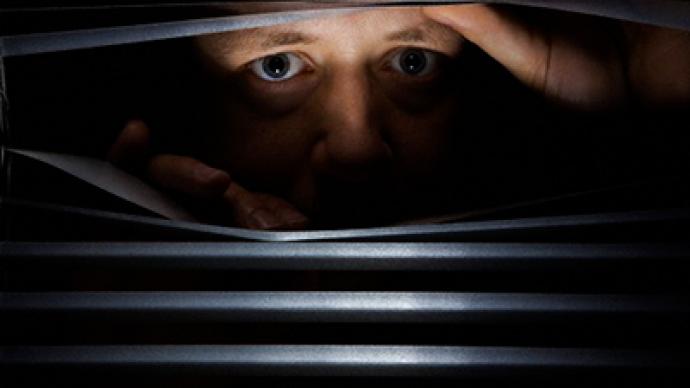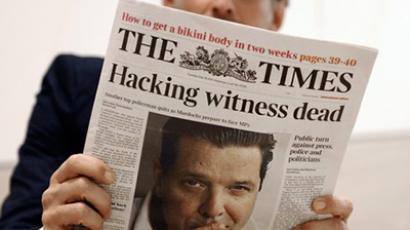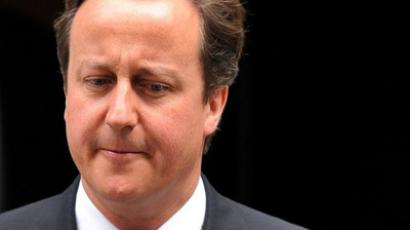News Corp scandal just tip of privacy-breaching iceberg

As the scandal over voicemail and phone-hacking by the Murdoch media empire rages, public and political fury has focused on ruthless tabloids out of control. But some say in this day and age, the whole concept of privacy is falling apart.
News International chairman James Murdoch has been accused of trying to mislead British MPs by saying he was unaware of the true extent of phone-hacking by reporters. His testimony was challenged by two former executives, Colin Myler and Tom Crone, who say Murdoch was informed three years ago that the illegal practice went beyond just one rogue journalist.And as the scandal continues to grow, critics believe the issue is just the tip of the iceberg in a society that no longer values the privacy of the people.“Everybody just clicks through, agreeing to the terms and conditions. Well those terms and conditions are very, very heavily weighted against you and your privacy interest,” says Dave Saldana, the communications director of Free Press.“We see breaches of privacy by corporations happening all across America, all across the world really, in every sector. Surveillance is rampant. But really this is all a microcosm of the biggest surveillor of all – that is, the state,” journalist Abby Martin believes.There is little Americans can do with the state having sweeping access to their private information – access that followed the 9/11 terrorist attacks, under a new law known as the Patriot Act.The privacy of Hasan Elahi, who is an associate professor at the University of Maryland, was taken away from him in 2002, when he was detained by the FBI for absolutely no reason he says, and scrutinized for months, without charge.His response? For nine years he has voluntarily documented nearly every waking hour of his life on the web. He has subsequently even turned it into an art-form. “These are all the toilets that I’ve used. You know that on Sunday, November, 24, 2007 I used this toilet, for example,” he explained pointing at a wall of pictures on his website.He posts copies of every debit card transaction, so you can see what he bought, where, and when. A GPS device in his pocket reports his real-time physical location on a map.Hasan says his extraordinary abandonment of his own privacy stems from the ignorance of the authorities.“In fear they decided: ‘well that guy looks like an Arab, so he must be an Arab. If he’s an Arab them he must have explosives, everyone knows that.’ That’s the logic where we’re operating. You realize how ridiculous that logic sounds. But when your own country takes that as the basis for national policy… Ignorance as the basis of your national policy is a pretty scary situation. And that’s how I got caught up in it,” he told RT.For Hasan, privacy has become a relic of the past, and he says he’s not surprised that journalists or anyone else really, would use the same surveillance tactics as the state.In that sense, it might be of no surprise that the chief architect of the Patriot act, the lawyer who put it together, happens to be one of Murdoch’s hand-picked News Corp board directors. Viet Dinh served as assistant attorney general in the Bush administration, and was described by some as the purveyor of the most sweeping curtailment of freedom in the US since the McCarthy era.At a time when corporations and the government can easily hack into people’s private lives, it does not come as a surprise when social networks give your personal information to ad companies, or when other industries live off breaching people’s privacy.In the US it is so widespread, and people have gotten so used to it, that Rupert Murdoch seems to be a perfect part of the system rather than some special villain, whose corporation has been undertaking some unique unlawful practices.Because in America they are not so unique.














